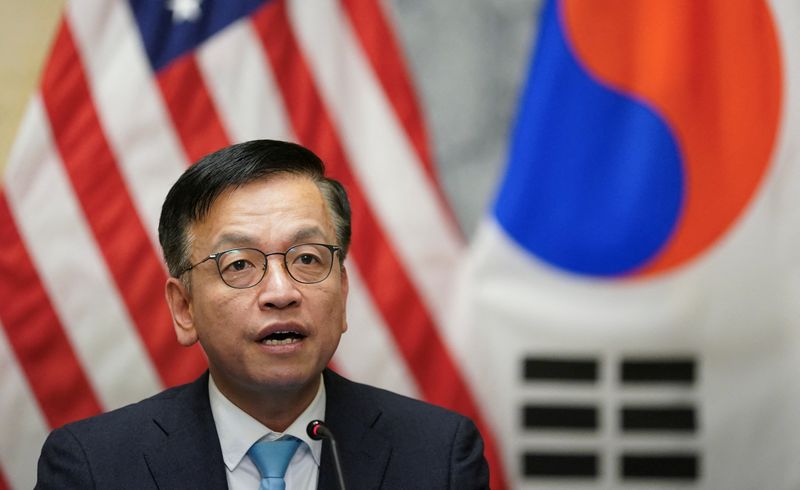South Korea seeks to cut inheritance tax in first revision since 2000
2024.07.25 03:14
By Jihoon Lee
SEOUL (Reuters) – South Korea on Thursday proposed tax cuts as part of its broader push to boost the domestic stock market and tackle a falling birth rate, which is the world’s lowest.
Among measures to beef up the “Corporate Value-up Programme” introduced in February, the finance ministry said it would lower inheritance taxes in the first such revision since 2000.
High inheritance taxes have been cited by analysts as a factor behind the “Korea discount”, which refers to South Korean firms’ comparatively lower valuations. Other factors include low dividends and the dominance of opaque conglomerates.
Family-run companies have few incentives to make management decisions that would lift stock prices as higher valuations mean more inheritance taxes for successive generations, analysts argue.
The finance ministry said it would remove the highest tax rate of 50%, which is levied on inheritance exceeding 3 billion won ($2.17 million) and instead apply a rate of 40%, the next highest, to any inheritance exceeding 1 billion won.
“There have been many requests pointing out inheritance taxes as a significant obstacle to corporate succession,” finance minister Choi Sang-mok said at a media briefing.
Choi said there was also a need to reflect changes in economic conditions, such as middle class wealth growth.
The government plans to raise the top of the lowest tax bracket to 200 million won from 100 million won currently. Taxes in this bracket are 10%.
South Korea’s current top tax rate is among the world’s heaviest, according to the ministry: above 45% in France, 40% in the U.S. and UK but lower than Japan’s 55%.
The proposal also included tax exemptions on corporate income to encourage firms to increase capital returns and lower taxes on dividend income.
The government will raise tax benefits for investment income earned through savings accounts to attract more retail investors and relax reporting rules to make foreign investment in Korean bonds easier, the ministry said.
Couples married between 2024 and 2026 will be given a one-time tax cut of 500,000 won per person to encourage households to have children in the country, whose fertility rate hit a record low in 2023.
The government will boost tax cuts for households to help with childcare costs and exempt tax on childbirth bonuses paid by employers.

The finance ministry will submit the proposal to the national assembly, currently controlled by the opposition, by Sept. 2.
($1 = 1,385.3800 won)








